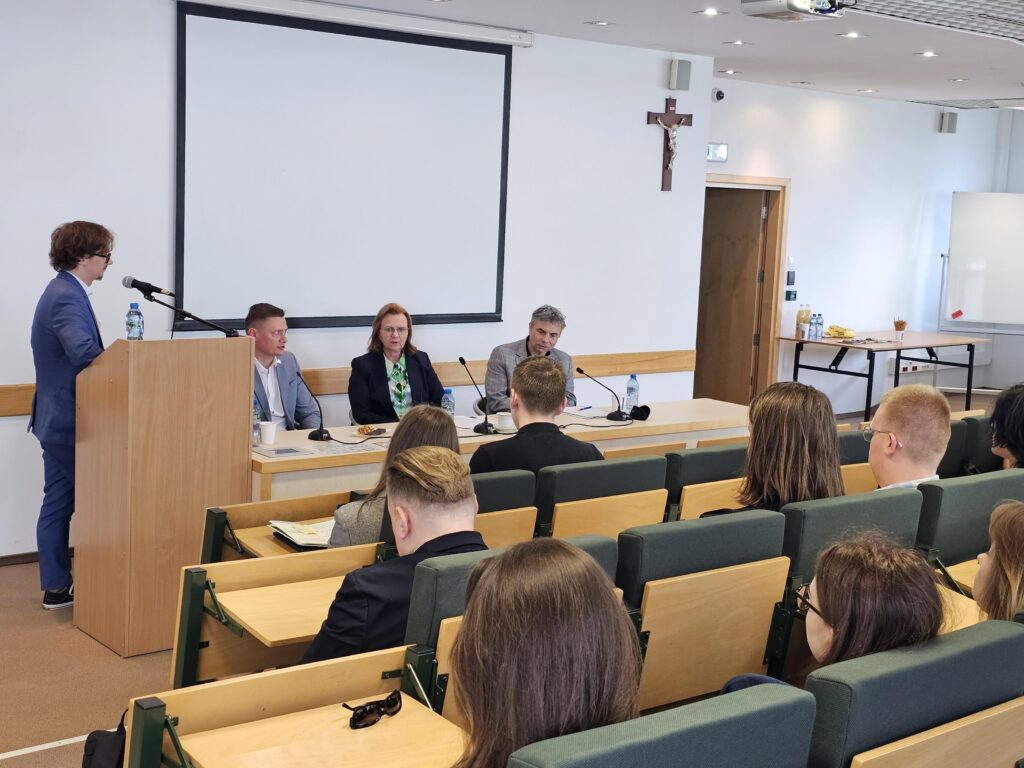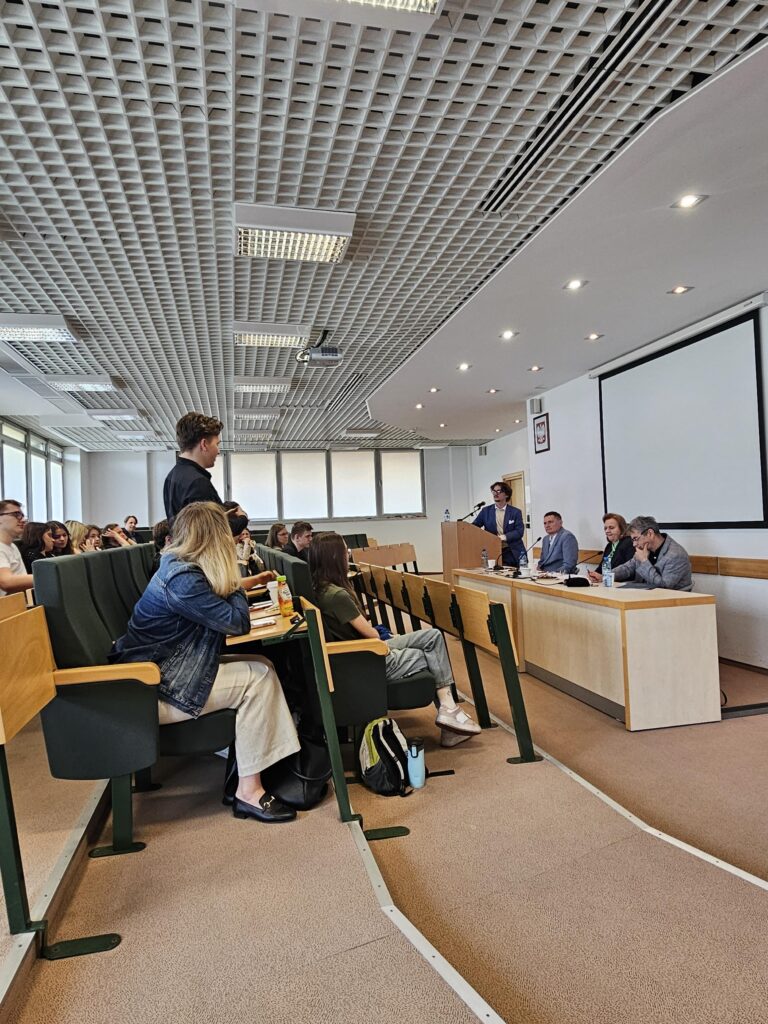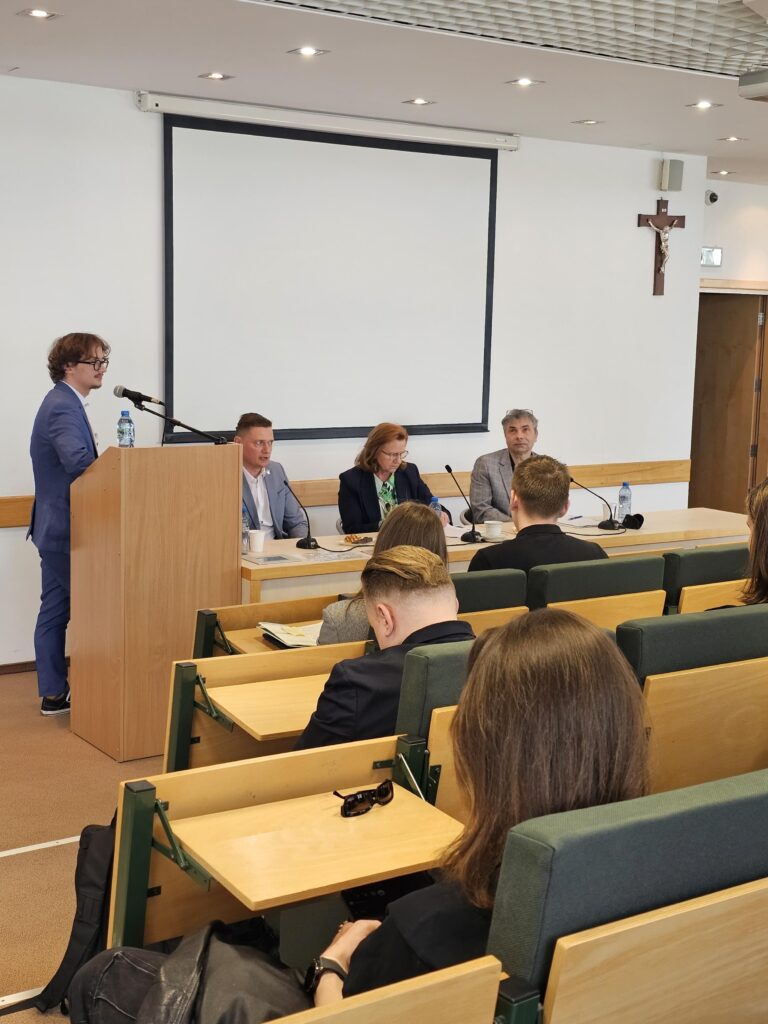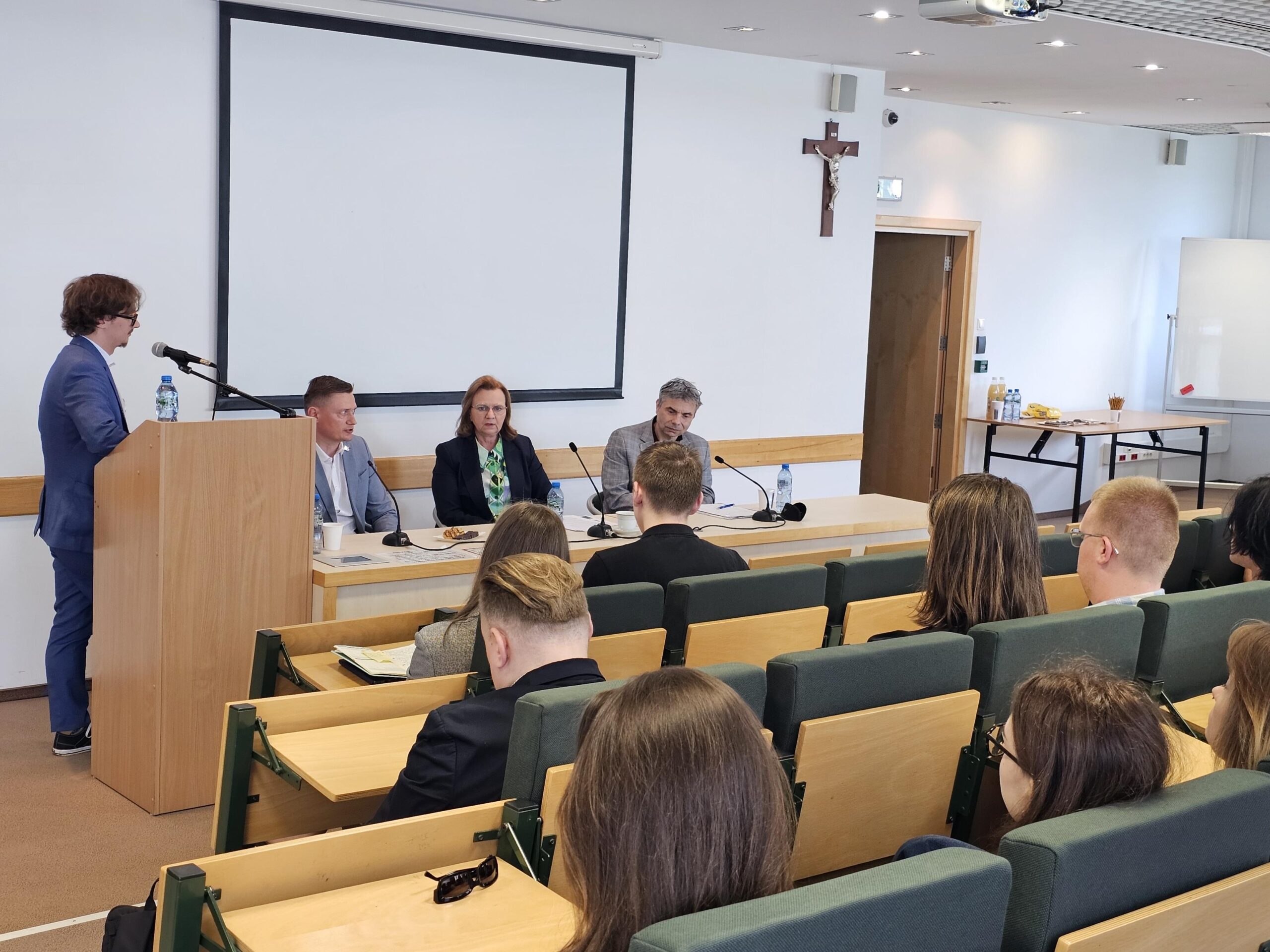Prof. Gertruda Uścińska, Rector of the Nicolaus Copernicus Superior School (SGMK) took part in the expert debate “The future of the social security system in EU countries” organized at Cardinal Stefan Wyszyński University.
Also participating in the discussion were Prof. Piotr Broda-Wysocki from the Institute of Political Science and Administration at Cardinal Stefan Wyszyński University and Sebastian Koćwin, Vice-Chairman of the All-Poland Alliance of Trade Unions.

The debate touched on the capacity of the systems, financing models, as well as the scope of Union regulations in the legal orders of member states. Participants discussed whether the current systems are able to meet demographic (aging populations), economic (instability of the labor market) and social (growing expectations of citizens) challenges. The need for reform and increased efficiency was emphasized. Different approaches were analyzed – from contribution-based systems (e.g., Social Security) to state budget financing. Attention was focused on the need for stable sources of income, including reform of the health insurance contribution.
Participants also discussed to what extend the EU should regulate social issues, which are traditionally the domain of nation-states. Some of them defended the sovereignty of member states, while others advocated greater EU coordination and solidarity.

They debated how the changing labor market (non-standard contracts, remote work, gig economy) affects the social security system and how to adapt the system to these changes. Confidence in the pension system was singled out as the key element of its stability. The need to promote additional forms of security was pointed out .
Participants also discussed whether access to housing (e.g., social housing, rent subsidies) should be treated as an integral part of the social security system to ensure a decent life for all citizens.

The debate showed that the future of social security systems in the EU requires reforms, greater flexibility and a balance between the responsibility of states and possible support from the European Union.







